Rise in AIDS in Larkana — A ticking time bomb
Total number of Aids patients registered in Larkana rises to 518.
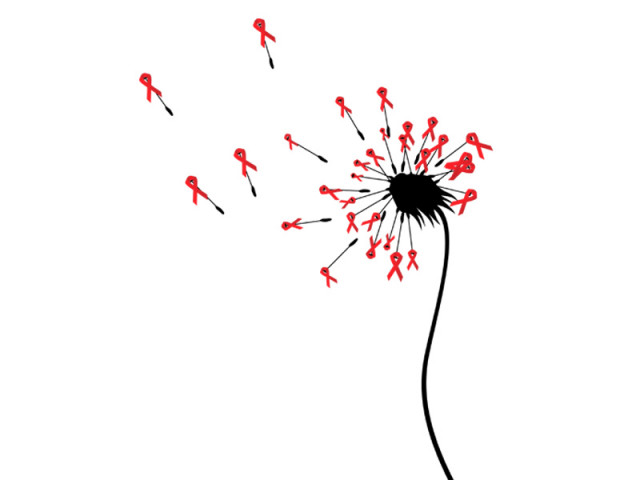
A staggering 113 new patients were registered during the first two months of 2013. PHOTO: UNAIDS
His cheeks appear sunken. His veins are too prominent, as there is no fat left to hide them. He appears tired and pauses for breath in between every few sentences. Shakeel Phull is from Larkana and he has AIDS. He used to run a tyre shop and was the breadwinner for a large family. Today he is almost bed-ridden and his mother works in different houses to support the family. “I never knew I would end up like this!”
With a staggering 113 new patients registered during the first two months of 2013, a majority of them young boys, women and children, the total number of AIDS patients registered at the clinic being run at Chandka Medical College Hospital, Larkana, has risen to 518, according to local NGO sources. The unregistered patients are unaccounted for, as many patients after the initial blood tests that confirm their being HIV positive, never come back. The government of Sindh, Sindh AIDS control program and the health department have failed miserably to provide any relief to the patients, and 20 AIDS patients have died during the last couple of months.
Why Larkana?
Second only to Karachi in the province of Sindh as far as AIDS is concerned, the number of AIDS patients is alarmingly on the rise in Larkana. Larkana, a major trucking route and a political hub, is a case in point that locations with greater population movement contribute to the transmission of infectious diseases. According to local sources, it is mainly spreading through cheap musafir khanas and hotels where young boys are offered for sex. A large number of brothels are operating in the city under the patronage of the police and other influential persons. Also, Larkana is replete with Injecting Drug Users (IDUs) who reuse and share syringes and needles. It was in Larkana that the first outbreak of HIV among IDUs was reported in 2003.
“Some AIDS patients who are highly frustrated at not getting any help or medical attention from the government or NGOs are infecting other unsuspecting people as revenge,” said a local source, requesting anonymity.
More At Risk
The sections of population most at risk include IDUs, commercial sex workers, children born to infected parent(s), runaway and street children, truck drivers, prisoners and migrant workers.
“HIV infections in male sex workers preceded those among female sex workers likely because of more efficient transmission through anal intercourse and the fact that although clients of male sex workers while more limited, may have more interlinked and dense sexual networks,” says a study titled HIV epidemic in Pakistan published by the Journal of the Pakistan Medical Association.
Medical Facilities
Some test facilities for AIDS patients are available in Chandka Medical College Hospital Larkana, while for other tests they have to go to Karachi. A clinic at Chandka medical college hospital Larkana, registers patients and provides medicines on a monthly basis. According to the requirements, all AIDS patients should attend the clinic once a month for counseling, but these facilities are not being provided at the hospital.
When asked why, Medical Superintendent Chandka Medical College Hospital, Dr. Mehboob Shah said: “I have recently joined and cannot comment”. Dr Saleem Shaikh, in-charge of this clinic, was also not available for comments. Earlier Dr. Hola Ram was in-charge of the clinic, but he quit the charge, because adequate facilities were not provided to the patients.
Whom to look up to for help
In the wake of this danger of an HIV/AIDS epidemic in Larkana, many NGOs are at work including Gender Interactive Alliance, Shah Abdul Latif Bhittai Welfare Society, Mehran Welfare Trust, Ghazi Social Welfare and others. But the NGOs fight lone battles. Neither does the district administration provide any support to these NGOs, nor do these organizations coordinate with each other. Patients seem disgruntled about these NGOs too.
According to the President Mehran Welfare Trust, Panjal Sangi, “We are providing every facility to AIDS patients including expenses for undergoing different tests and ration.” When asked why AIDS patients complain that nothing except medicine is being given to them, his answer was: “AIDS patients and flood-stricken people never get enough, no matter what you do for them.” Local sources however revealed in hushed tones that the same NGOs start running after the AIDS patients when anybody from a donor agency or the Sindh AIDS Control Program is scheduled to visit Larkana. Otherwise, they are inaccessible to patients.
President of Gender Interactive Alliance Transgender Bindiya Rana said, “it’s the job of district administration to control these social evils. I have met with many officers in this connection, but nobody seems interested.”
Lala Maqbool Mashori of Ghazi Social Welfare said his NGO mainly deals with IDUs. “We meet their families and motivate them to deal with the drug addicts with extra care, because their families can bring them back to normal life.”
Most of the AIDS patients feel that no one does anything for their welfare, like Nadeem Baloch who is working as a security guard and suffering from AIDS for the last five years. “Tall claims! But when it comes to practical work, their performance is zero,” he complained.
Collateral Damage
Ghulam Zakia Jokhio is suffering from AIDS for the last six years for no fault of her own. “My husband, Mohammad Pannah Jokhio, had gone to Saudi Arabia to earn a livelihood for the family. On his return, he brought this deadly disease. The poor man knew nothing about the disease,” she says sympathetically, and reveals that their youngest daughter Yusra, 4, is an AIDS patient. Her husband died two years ago.
Zakia is a mother of five. And it’s almost impossible for her to make ends meet. “I have rented out my own house for Rs1,500 per month and am living in my nephew’s house, who is a clerk in the army,” she said. “I have also learnt to sew, because an NGO had promised to give me sewing machine. I am still waiting,” she says, her hope still alive.
Women are a vulnerable group who often acquire the disease from their men. “Men who visit brothels and don’t use protective measures end up infecting their wives,” she says with a tinge of complaint.
After spending 17 years in the Middle East, Fida Hussain Brohi came back to Pakistan and married. In 2006 he and his wife were diagnosed as HIV positive and since then are taking medicines. “My wife is pregnant. We hope our child will be free of the disease,” he says.
A worker at a roadside hotel, Imdad Ali Gopang contracted AIDS some ten years ago. “I frequently used to go to brothels and never knew I would have to pay so heavy a price,” he said. His wife is also suffering from Heptitis-C which she got from him. “I implore youngsters to refrain from indulging in such activities and using drugs. Look at me. Don’t end up like me,” he said.
Published in The Express Tribune, March 30th, 2013.
Correction: The earlier version of the story spelled AIDS in lower case. It has been fixed.

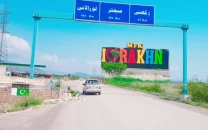
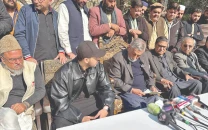
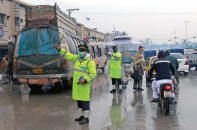

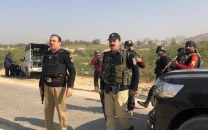













COMMENTS
Comments are moderated and generally will be posted if they are on-topic and not abusive.
For more information, please see our Comments FAQ